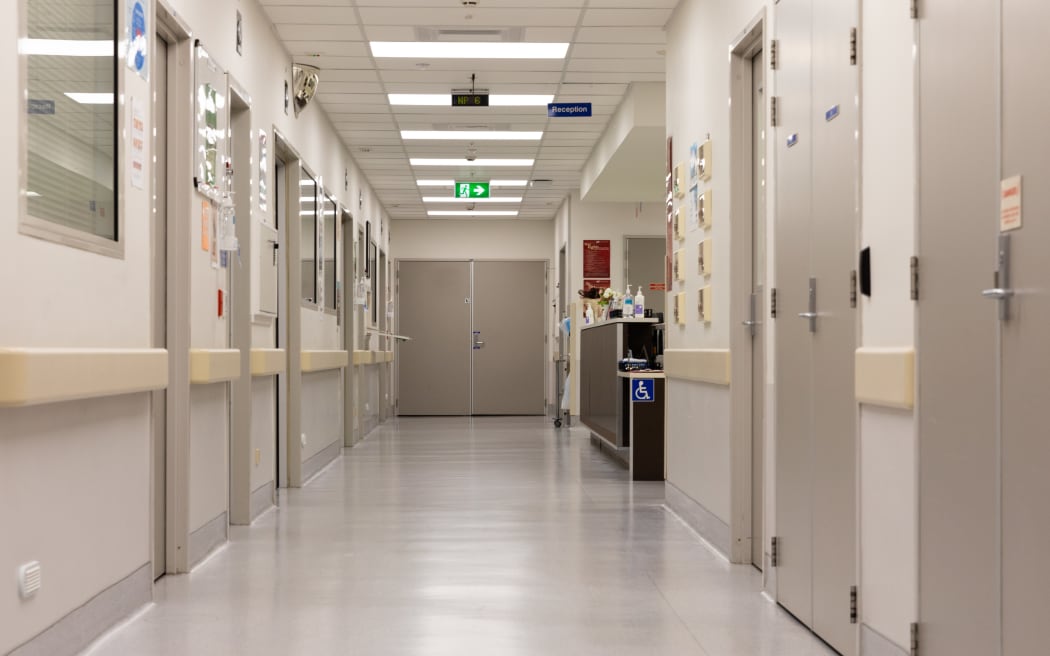Cancer patients still being told of 12-week wait times, patient advocate says

Letters to cancer patients in the far south warning of long delays in being seen have been sent out by Health NZ, shortly before it claimed it was seeing most of them on time.
Te Whatu Ora told RNZ on Monday it was treating 90 percent of cancer patients on time in the southern district.
But recent letters to newly diagnosed patients talk about a delay.
"We expect to see you in approximately 12 weeks," said one letter dated late April and another dated 16 June.
That was three times longer than the national target of four weeks (31 days since diagnosis) to have a first appointment with a specialist.
Twelve weeks, or 84 days, exceeds not just the first appointment target, but the subsequent one, of starting actual treatment within 62 days of diagnosis.
The letter was sent to a patient in a period in which Te Whatu Ora had been told to make urgent changes.
Patient advocate Melissa Vining said she had seen 30 such letters telling patients they faced a 12-week wait.
RNZ has asked Te Whatu Ora how many patients had got a 12-week-wait letter since 11 April.
It did not respond.
The Health and Disability Commissioner (HDC) on 11 April gave Te Whatu Ora and the Cancer Control Agency till Tuesday this week to report back on improvements.
Te Whatu Ora missed the deadline.
"We have not yet received the response from Te Whatu Ora," the HDC said late Wednesday.
But on Monday, the agency said it had "met all of the critical elements of the HDC report".
"Ninety percent of our patients are starting treatment with[in] the expected timeframes," a senior manager Dan Pallister-Coward told Morning Report.
Vining disputed this by email to Pallister-Coward on Tuesday: "It is one thing to have a system failing the people of the southern region but to say you have actioned the critical elements of the report and that 90 percent of patients are getting their treatment on time is simply untrue."
Back in early April, just before the HDC report came out, Pallister-Coward had detailed in an email wait times that were much worse
"Across the priority bands 69 percent are seen within the accepted timeframe," his 5 April email said.
"For high priority patients - those with known responsive cancers with a survival benefit or patients that are palliative with significant symptoms - 59 percent are seen with the target timeframe, 26 percent a week later and 16 percent over a week later."
He also said: "Over the next week there will be communication directly to patients and their primary care teams/referrers regarding delays to within the service."
Vining, who sparked the HDC report from her experience when her husband died of cancer in 2019, also told Pallister-Coward on Tuesday:
"Daniel you wrote to me in April saying the following week patients would get appropriate communication. The letters still say 12 weeks and no appropriate alternatives."
Blair Vining had also got a 12-week-wait letter back in 2018, when he had been given less time than that to live.
"I accept resourcing is challenging but if you can not provide appropriate care in an appropriate timeframe, communicate it to the patients and find them a suitable, timely alternative," Vining wrote on Tuesday.
The HDC told Te Whatu Ora in April it must communicate better with patients, such as about current wait times, including when wait times were outside current recommendations.
But Te Whatu Ora's April and June letters to patients fail to spell that out.
"Referrals to the oncology service are assessed according to the Ministry of Health guidelines, which for your condition recommend that you are seen within weeks," it said.
An earlier version of this letter that Vining was sent - her husband died of cancer - said the guideline was "that you are seen within four weeks".
The "four" is missing from the April and June letters.
The one-page letter does not give any advice about the clinical implications of what an extra eight-week wait might mean, or give many options, other than "privately funded referrals".
It does not provide any contacts other than an 0800 number.
RNZ rang this number three times yesterday afternoon before 5pm, and each time got a recording saying to please leave a message after the beep.
The letter expressed sympathy for "the impact that cancer has on all aspects of your life and the lives of your family, whānau and wider community, and not just on your physical health, but on your mental wellbeing, financial situation and your ability to play your role in your community".
It is understood Te Whatu Ora has updated the patient letter just prior to reporting back to the HDC. RNZ has asked for a copy.
Health NZ's online patient data gives mostly 'green' OKs about oncology wait times in the southern district. But the agency has been struggling with data, embarrassing the Health Minister by giving her badly flawed performance records.
Thursday, an investigation report into this has been released and found multiple existing weaknesses with collection, aggregation and validation of data. Te Whatu Ora said in response "we wholeheartedly believe in the importance of performance reporting as a key means to build public trust and confidence in our work".
Dunedin Hospital's oncology department has been woefully understaffed for years.
The HDC found this had caused patients harm and distress from 2016 up until last year. It found previous hospital leadership did not address this. However, current district director Hamish Brown was widely praised. Brown did not return RNZ's calls.
Te Whatu Ora has said it was using three locums - ring-in doctors, some by video-call - to deliver services in the south, and sending some patients to Christchurch, Waikato, Wellington or Auckland hospitals. It was trying to recruit more senior oncologists.
"All patients continue to receive the treatment they need," Pallister-Coward said in the 5 April email.